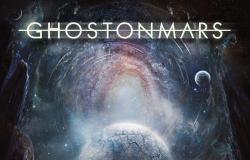Civil War by Alex Garland is the film about the worst years of our lives. Everything unimaginable, incomprehensible and shocking that we have seen in this unfortunate four-year period can be seen again in this film. The emphasis is on the words “see” and “review”, because Civil War it is also and above all a film about the image: the protagonists are the war photographers Lee Smith (Kirsten Dunst) and Jesse Cullen (Cailee Spaeny), the former a veteran and the latter a novice, penultimate and last bearer of the sacred flame lit by Lee Miller, legendary war correspondent by Voguewho wrote about and photographed bombed London, liberated Paris, devastated Normandy, Buchenwald and Dachau.
Therefore the photography-image, which Garland however does not intend as an object or as a practice but as space: that which separates the human being from reality, that in which the human being’s ability first to understand and then to perceive reality is lost, that in which the war is fought between the moral order that governs human interiority and the chaotic flows that overwhelm the world outside. Above all, the photography-image is the space in which Garland once again sets his favorite story: that of disintegration, of annihilation, of a fissure that opens, that widens into a fracture, that widens further until it becomes rift that irremediably breaks the initial unity. It’s the story that Garland has told in different forms and in different spaces in all of his previous films: Ex Machina, Annihilation, Men, all films about disintegration. And which this time he decided to bring up to the maximum scale truly conceivable, perceivable and experienced by the human mind: that of a nation state and an entire people. And of course of the nation state and people that we all conceive, perceive, experience as greater than any other, the United States of America.
It doesn’t happen but if it happens it’s a phrase that has often come to mind in recent years. The first pandemic after a century of truce with the microscopic enemy, the succession of natural disasters caused by the climate crisis, yet another depressive crisis in the third age of Western capitalism, Russia invading Ukraine, the Hamas massacre in the kibbutzim Israelis, Israel’s massacre revenge. In a desperate attempt to protect our inner space from disintegration, from annihilation, we have updated the does not happen but if it happens: even if it happens, it still happens elsewhere, to others. In Civil War Garland violates precisely this final taboo, undermines all those who, in the face of adversity, turn to the sky screaming “why own to me?”, a lament that we have all made in recent years, while experiencing for the first time adversities which in other parts, for other people, are the daily struggle. Why Not to you?, replies Garland.
Why not to Washington instead of Kiev, why not to the United States instead of the Gaza Strip, why not to the inhabitants of the first world instead of those of what was once called the third. Civil War it is the sole of a combat boot that tramples and extinguishes the lukewarm embers of what was once the blazing fire of American (but not only American) exceptionalism. It is the opposite of the speculative fiction to which it has been reduced by the superficiality of criticism, the opposite of a what if, the rejection of uchronia and dystopia: it happens, it happens here and now, it happens now because it has already happened in the past. In the United States a civil war has already been fought in the past, at the end of the last electoral round a coup horde broke into Capitol Hill remote-controlled by a former president who had decided to still be president, in little more than a year there will be it will be a new presidential election: why Not to you?, therefore.
In an attempt to disintegrate this belief – the most stubborn form of Western privilege – that if it happens, it happens elsewhere, to others, Garland makes Civil War not a war film but a road movie. The protagonists, however, do not move either in time or space, but in that hybrid of these two dimensions which is collective memory. On board their pick up, they pass through the scenes – the images, once again – that we have all seen in these years that have been the worst of our lives: the deserted metropolises, the mass graves along the country roads, the forests that suddenly catch fire, rubble and ash covering everything, the story of our recent disintegration. During this journey into what has already happened to us (and therefore why it shouldn’t happen again, to us) but which we still have to understand (the effects on the collective psyche of this unfortunate four-year period are immeasurable, again), Lee and Jesse take photographs . And each photograph is a fissure that becomes a fracture that widens into a fissure, an aesthetic abstraction of reality – the fact that Lee and Jesse shoot in black and white is certainly not a tribute to Magnum Photos and that’s it – and not its essence explained . Garland here wants to disintegrate another useless adage of contemporaneity, now made harmful by the proliferation of images in which we all live: the one according to which an image is worth a thousand words. What is a photo without the thousand words that serve to explain it? What is an image without the thousand words that are not enough to tell its story? It’s habit, it’s enjoyment, it’s consumption, it’s scrolling: exactly what we all do all day every day, exactly the reason why the image has become the space of disintegration, the broken bridge between individual and society, between person and world.
The validity of this thesis, which Garland advances in the film even slavishly – in the midst of a civil war, the very young Jesse spends her time scrolling through her personal archive of photos to choose the best one to show, to say what idea Garland has of youth and modernity – is demonstrated by the way in which the film was received and commented on, especially in the United States. Garland has been accused of having made a cynical, apathetic, nihilistic, even indifferent film (but no one had the courage to use the word laziness, knowing that the film is so obsessed with verisimilitude that it required the use of real cameras war, real tanks and real helicopters), when instead if this film has a flaw it is precisely the excess of romanticism: Garland said he intended it as an homage – depressing certainly, like the recording of a bird’s song by now extinct – to the profession of journalist, to the friends of his cartoonist father who as a child he listened to while they discussed the things of the world in the living room of his house. He didn’t mention a single film or director among his influences Civil War, Garland. Only old news bulletins and yellowed photographs, so much did he want to be explicit in his aspirations and inspirations.
All those accusations were leveled at Garland because he didn’t provide ideological guidelines to the audience, because he didn’t leave moral compasses for everyone at the entrance to the room. We don’t know why a civil war is underway in his version of the United States: we have no idea why the President decided to violate the Constitution by running (and winning) for a third term nor do we know why at a certain point he decided to bomb the his fellow citizens. We are not explained the reason why the Western Forces of Texas and California or the Florida Alliance decided to secede, nor the reasons that pushed them to attack the Capitol. We don’t know who the Republicans are and who the Democrats are in this story.
But the point of Civil War it is exactly This: what is a photograph – and this is your film, in essence: an aestheticized fiction of a possible America, just like the photographs of Lee and Jesse – without the thousand words that serve to describe it? What is a nation without ideologies and mythologies? What is a war without history? And above all: when faced with images of unspeakable violence, does it make sense to ask? If the President who orders the bombing of his own country were a democrat at war against the army of the alt-right, what and how much difference would there be. If the secessionist armies filling mass graves of the type of American citizen they deem wrong were republicans, what and how much difference would there be. By seeing just a photo – or a film – of all this, would we be able to understand the differences and decide which side to take in a civil war?
Tags: Civil War Alex Garland destroy United States




